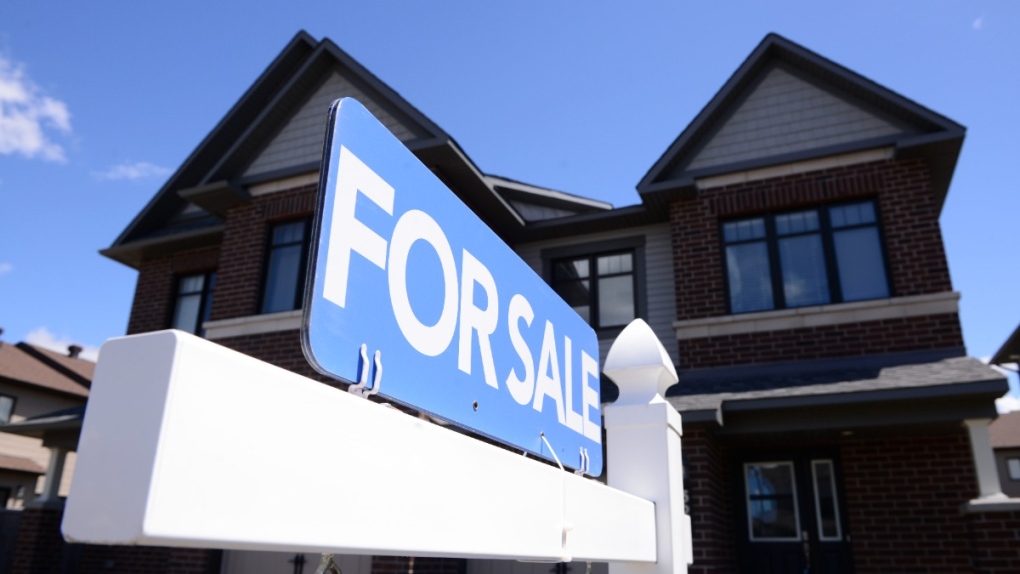The report notes that residents in the capital should be making $129,320 per year – as of February, 2024 – to qualify for a mortgage to purchase the average priced home. The income needed to prequalify has risen by $480 from January to February.
The average price of a home in Ottawa was $621,600 in January and $628,500 in February – an increase of $6,900, reads the report.



It was careless of me to imply that I meant part time minimum wage earners. I meant part time workers that make low wages.
If a landlord can make profit from tenanting a home, then the tenant can afford to own that home.
Prefabricated homes.
Am I misinformed? I was under the impression that many people want to own homes but can’t afford anything.
I agree, renting should exist.
No it doesn’t. $200,000 was the lowest listing price for any potentially inhabitable home on realtor.ca within the territory it considers Ottawa.
I didn’t say even part time workers ought to be able to afford a house ownership. I said home. My (albeit: quick) search found no homes for sale within Ottawa for less than $200,000.
That’s a choice our society is making.
My wife and I own a house, and I agree that house ownership is expensive. Home ownership is less expensive than renting (granted riskier).
No. My house has increased in [estimated] value by more than the total pre-tax salary I had at the time of purchase. Every year. Granted, I make much less money than my wife, we bought pre-2020 and there’s a lot of time left on our mortgage so we’ll see what the market does. All that appreciation is tax free too.
Yes, a way to allow people with marginal income the potential of ownership. That’s what I’m talking about. We agree.
This is still incredibly low below the mark of fundamentally how much a home costs to manufacture.
Landlords, long term, tend to not make as much money as people think. Most well of Landlords have gotten there via potentially illegal or problematic means. They also primarily rent apartment complexes. Most landlords avoid renting detached homes as it’s a money sink.
You always have to keep in mind a very sizeable chunk of people that are included in “average earner” calculations (and thus impact the bell curve) are very young folks who haven’t even started a career yet. They are potentially living at home, or renting, abd going to school.
A very sizeable chunk of folks 100% don’t want to own property yet, their career/life trajectory is still too volatile for them to want to put down roots somewhere specific when they may want to change entire cities to pursue goals at any time.
Tonnes of folks would much rather go backpacking in Europe for a year, or move to another city to live with their partner.
And keep in mind a chunk of earners are literally still in high-school and very much not ready for so.ething as complex as a mortgage, they can’t even vote or drink yet and maybe just git their drivers.
These people 100% are on the Earners graph though, and they influence that “Average Earner” value.
So keep in mind the “average earner” factors in kids working part time at high school, and there’s a lot of em out there.
That’s why simply speaking your absolute bottom of the home owner demographic starts a decent ways up the graph. The first chunk if the graph is “used up” by all those folks who literally don’t even want to own a home yet.
I’ve seen numbers thrown around of around 25% to 30% or so of the bottom of the graph being this demographic. Most people in late teens to early 20s aren’t remotely interested in a home, and a sizeable amount of late 20s too. It isn’t until you hit people in their 30s that prospective home owners start to become the majority rather than minority.
It’s irrelevant whether landlords make only small profits, because a small profit is still incompatible with your claim that it’s impossible to build housing that low earners can afford to own. Because if low earners can afford to rent units in apartment complexes then they can afford to own those units. But our society does not make such units available to them for purchase. Can you please engage with this obvious inconsistency in your position?
You skipped it when you quoted what I said but left out the important bit.
Furthermore, renting is profitable because you are paying for a service and all the benefits I prior mentioned.
Effectively speaking renting anything, not just homes, works this way.
Why do people rent extremely expensive tools from home depot instead of just buy them themselves?
Because they don’t need those tools for life.
Why do people rent apartments, even though it’s “at a loss” and it’d be more economical to own?
Because they don’t want to own some shitty apartment that’s half ass built (most are, even “nice” ones)
Renting leverages the risk of cost onto the person renting the item out. I know if I buy a $10,000 tool and rent it out, it’s a gamble that it will pay for itself in renting returns before it shits the bed.
Apartments are much the same. You have 2 routes to go.
Maintain it right, but then your returns are extremely tight and if anything goes wrong early on you are fucked, and deep in the red. You likely won’t make your investment back for 20+ years, but after that it’s good money bit you have to be extremely confident that you can take care of the place right
Cheap out and make fast cash up front and do bare minimum maintenance, trying to make your investment back before the property goes belly up.
If you rent, you have no risk. You pay money abd live in a home.
If you truly are under the impression that landlords are universally making profits, you are deeply mistaken.
You hear about the small handful that make good money and typically it comes out that they were of the variety #2, short term profit but they’ll pay for it later when their property tanks in ~20 years due to bad maintenance, and their cash flow dries up and suddenly their money in starts turning into money out.
Basically, you need to look at a lot of the shitty landlords as idiots who are pretending they are rich but are buying everything on credit cards.
Yeah, sure, thay are buying nice stuff now, but it’s with borrowed money
Except instead of a credit card it’s a mortgage, any their renters are effectively a mechanism they can use to convert their mortgage into cash, at the cost of building wear and tear.
But the wear and tear is delayed, really delayed. Instead of having to pay off the credit card in 1 month it’s more like if you have to pay it off in 5? 10? 20 years time. It’s a random dice roll.
(Paying off the proverbial credit card being building maint)
You can suddenly have 200k evaporate overnight because something shit the bed because you didnt deal with it 2 years ago, or 4 years ago, because you cheated out on something else 8 years ago.
Each of those shortcuts was what meant “profits” early on, and thus they looked profitable…
But now those profits come back to bite you.
Often it’s a case of “you saved 50k 8 years ago UT now you gotta pay 200k on repairs today, because you cut a corner”
I hope that above example greatly highlights how it’s like an idiot pretending getting a credit card from the bank = being rich and maxing it out asap.
Meanwhile landlords that do the job right early on are deep in the red for a lonnnnng time, and they don’t turn any profit til many many years later.
And when you look at the profits over 40 years of work to maintain the place… it’s basically just them turning a profit on their labor at a decent cost…
Because that’s literally what they did, skilled labor maintaining the place for 40 years. Which us reasonable to expect to profit off of.
I didn’t think you calling land lords criminals was central to your point. So left it out of the quote.
You’re making a lot of claims about land lords but I’m not convinced. Is it just like your opinion or is it based on something?